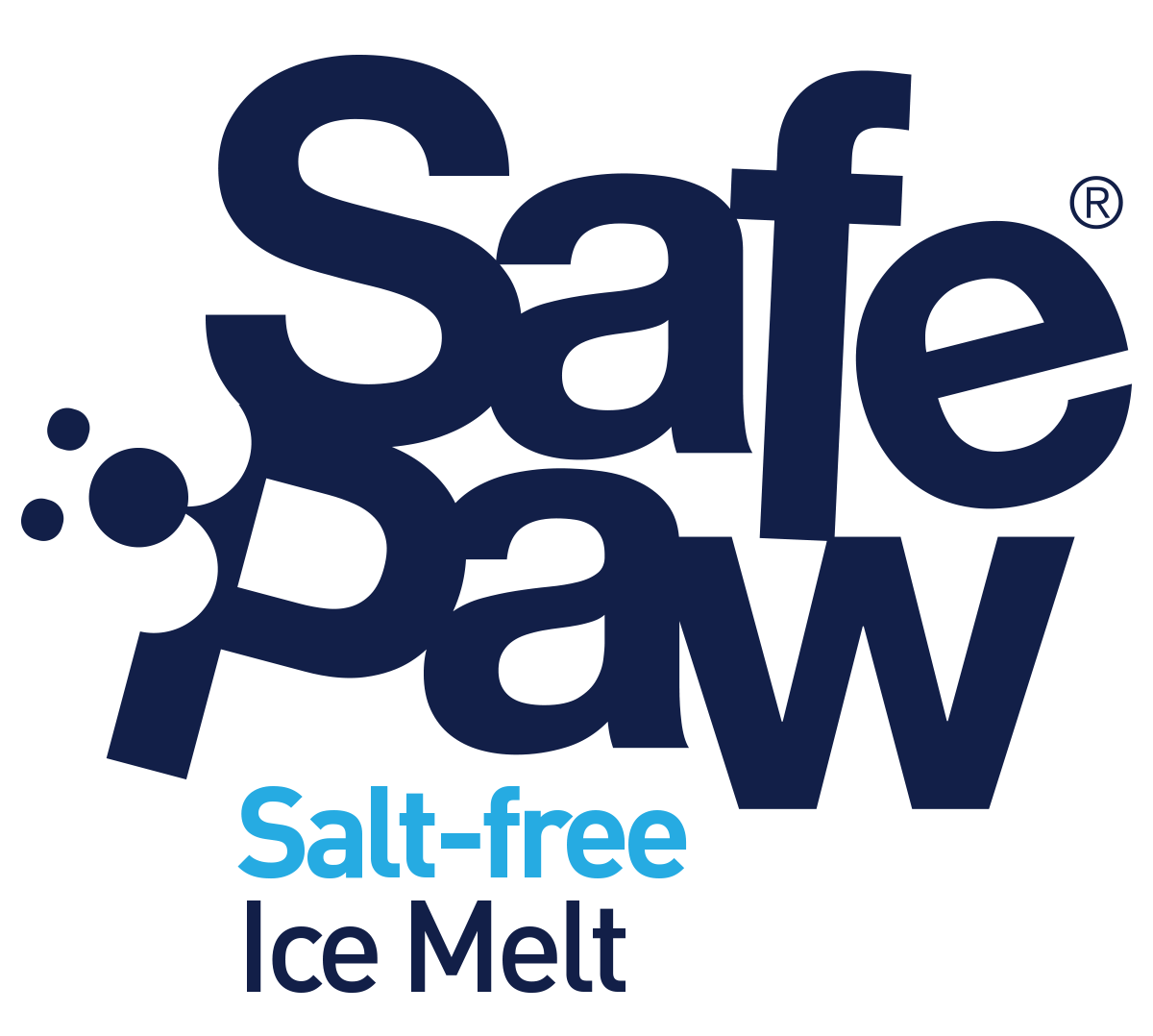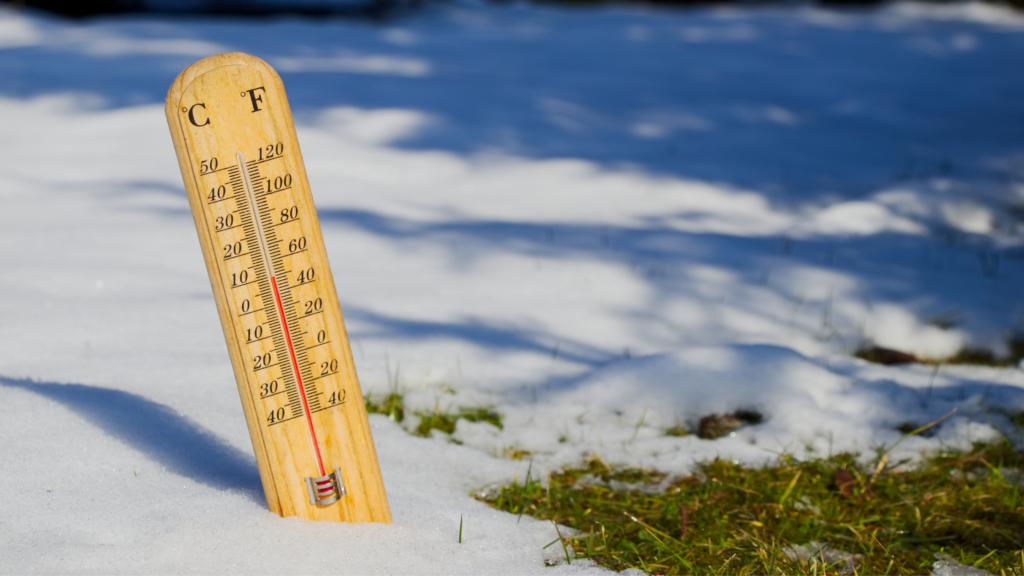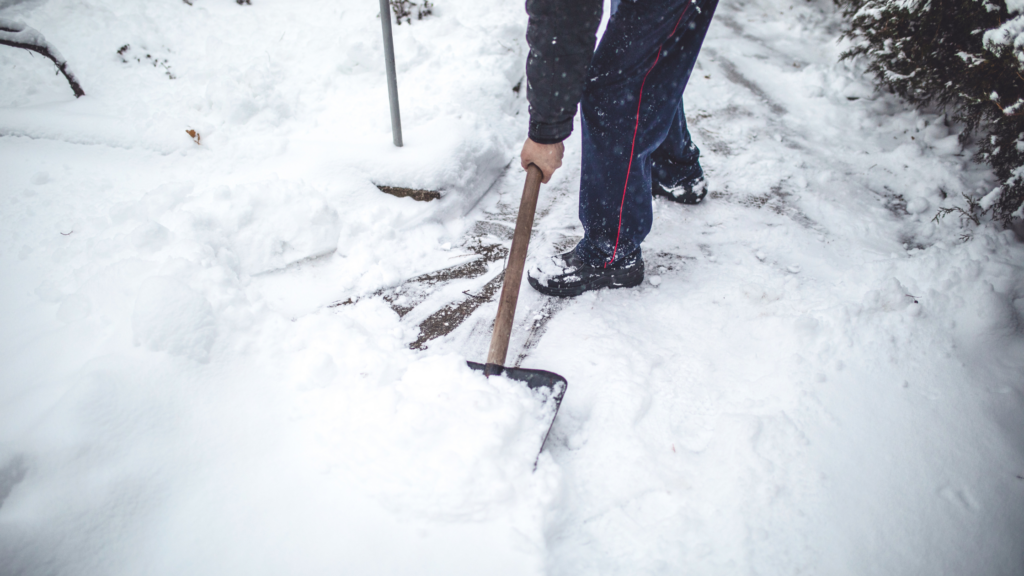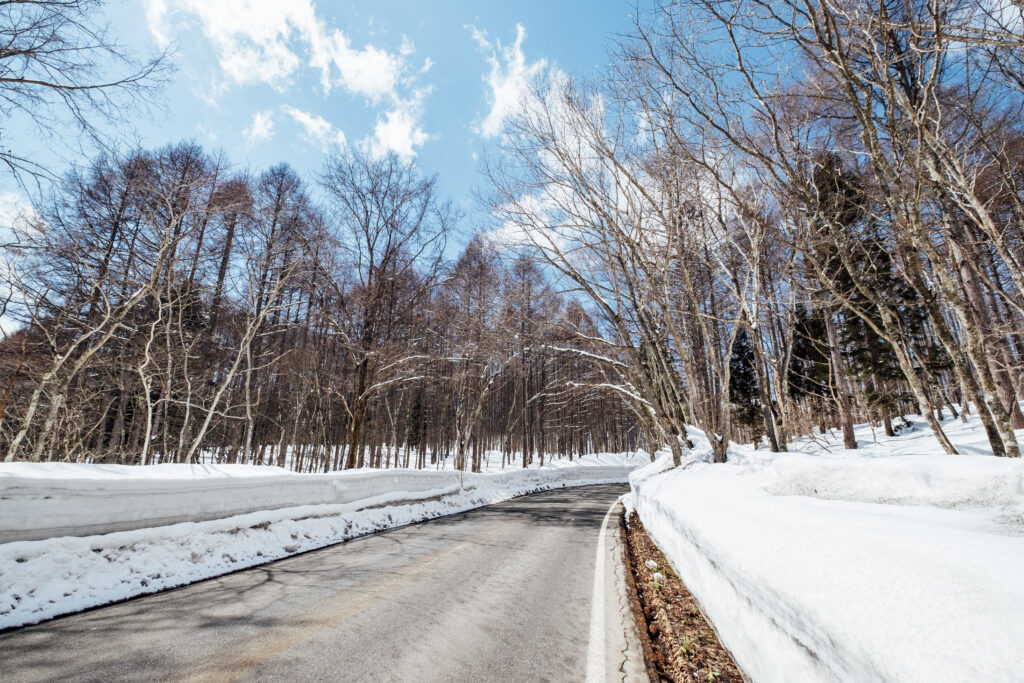
Table of Contents
Get ready for winter with Safe Paw: The Pet-Friendly Ice Melter that cares – for your home, pets, and planet.
The Environmental Impact of Rock Salt
The growing concentrations of chloride in water bodies in different regions of Canada including densely populated ones such as Ontario and others are of great concern. Chloride is hard to remove from water and its high concentration is detrimental to aquatic life and the quality of potable water. Instead, municipalities are using or promoting the use of alternatives to rock salt to minimize its adverse environmental effects.
Damage to Driveways and Vehicles
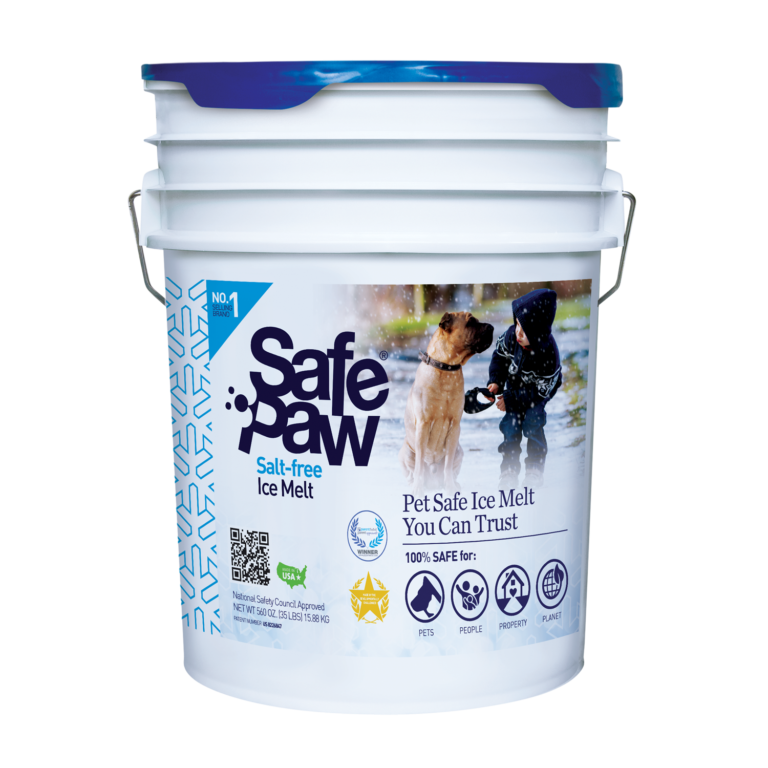
Safe Paw
It is a pet-friendly, eco-friendly ice melt that is safe for your family, pets, and property. It is made with a unique formula that is gentle on paws and concrete, and it melts ice and snow quickly and effectively.
Safe Paw is the perfect choice for winter weather!
Health Risks to Pets and Children
Another major reason homeowners are moving away from rock salt is concern for the health of their pets and families. Rock salt can irritate the paws of dogs and other animals, causing them discomfort and even leading to chemical burns. Worse still, if pets lick their paws after walking on treated surfaces, they risk ingesting the salt, which can cause vomiting, diarrhea, and other health issues.
Children playing outside are also at risk, as rock salt can irritate their skin and eyes. Ingesting even small amounts can be harmful. These safety concerns have prompted many families to seek out safer alternatives.
Get ready for winter with Safe Paw: The Pet-Friendly Ice Melter that cares – for your home, pets, and planet.
Safe Paw: A Better, Safer Alternative
As homeowners shift away from traditional rock salt, alternatives like Safe Paw are becoming more popular. Safe Paw is a salt- and chloride-free ice melt designed to address the very concerns that rock salt presents. Here’s why it’s the ideal solution for Canadian driveways:
- People and Pet Safe: Safe Paw’s non-toxic formula ensures that pets and children can safely play on treated surfaces. If ingested, it won’t cause harm, and it’s gentle on paws, skin, and eyes, making it a safe choice for families.
Melt at Low Temperatures: Unlike many ice melts that struggle in extreme cold, Safe Paw works even in temperatures as low as -2°F, which is crucial during harsh Canadian winters. This ensures that your driveway stays ice-free even during the coldest months. - Non-Corrosive and Long Shelf Life: Unlike rock salt, Safe Paw won’t corrode your driveway, sidewalks, or vehicles. It’s non-conductive and non-corrosive, protecting your property from the damage that traditional salt can cause. Additionally, Safe Paw’s concentrated formula lasts up to three times longer than rock salt, saving you time and money.
- Excellent Spread Rate: Safe Paw’s unique formulation means you need less of it to cover a large area. Its superior spread rate means you can use it efficiently, treating small and large spaces alike without needing to constantly reapply.
Can You Put Salt on Concrete Driveway Surfaces?
Many homeowners still ask if sprinkling salt occasionally on their driveway really matters. The honest answer: yes, it does. Even a few applications can leave a lasting impact. When you put salt on concrete driveway surfaces, the crystals seep into the porous material. Once melting snow refreezes overnight, that trapped moisture expands, causing surface scaling and deeper cracks with every freeze-thaw cycle.
What makes this worse in Canada is the length and severity of winter. It isn’t just one storm—it’s months of repeated exposure. Over time, the driveway shows pits, flakes, and widening fractures, and the repairs often cost far more than the savings from that bag of salt.
The Hidden Trade-Off of Magnesium Chloride Ice Melt Canada Products
In recent years, many stores have stocked magnesium chloride ice melt Canada products as a “better” alternative to rock salt. They are often marketed as being less corrosive and more effective at lower temperatures. While that’s partly true, the trade-offs can’t be ignored.
Runoff from magnesium chloride alters soil composition, starving roots of nutrients. Shrubs and grass near treated driveways show slow but noticeable decline after repeated exposure. And just like sodium chloride, magnesium chloride still leaves concrete vulnerable—damage may not appear as quickly, but it accumulates over seasons.
It’s a softer punch, not a safe one. Which is why many families, especially those with pets, are realizing that “less harmful” isn’t the same as “harmless.”
Calcium Magnesium Ice Melt: Doubling Up the Risks
Another product that often pops up is calcium magnesium ice melt. The idea is simple: combine calcium chloride’s power in extreme cold with magnesium chloride’s so-called gentler profile. But the reality is that the risks also combine.
Calcium chloride is highly corrosive—it pulls in moisture, heats up rapidly, and erodes surfaces. Magnesium chloride brings its own problems for plants, pets, and concrete. Together, they melt ice fast, but at the expense of your driveway’s lifespan and your lawn’s health.
Instead of canceling each other out, the chemicals amplify each other’s downsides. For property owners trying to protect their investments, this isn’t a balance—it’s a burden.
Driveway Salt: Cheap Upfront, Costly Later
At first glance, driveway salt looks like the most practical choice. A big bag at a low price feels like winter insurance. But those savings rarely last. Concrete spalling, vehicle rust, stained walkways, and trips to the vet after a dog licks salt off their paws—all of these are hidden expenses tied directly to salt use.
Every winter, homeowners pay for driveway salt twice: once at the store and again through repairs, replacements, and health costs. That’s why more Canadians are questioning whether the “budget” option is really saving them anything at all.
Shifting Toward Smarter Winter Care
This shift away from rock salt isn’t just about being eco-conscious—it’s about being practical. The question can you put salt on concrete driveway surfaces always circles back to the same truth: it causes damage, sooner or later. Products like magnesium chloride ice melt Canada or blends like calcium magnesium ice melt may promise an easier trade-off, but the end result doesn’t change.
Canadian winters are already tough on homes and landscapes. Adding corrosive chemicals into the mix only accelerates the wear. More homeowners are learning that salt-free alternatives aren’t just “nicer for the planet”—they’re the smarter way to protect property, pets, and peace of mind for the long haul.
Get ready for winter with Safe Paw: The Pet-Friendly Ice Melter that cares – for your home, pets, and planet.
Conclusion
Rock salt may have once been the default choice for Canadian driveways, but the long-term costs make it hard to justify today. Whether it’s the gradual impact of magnesium chloride ice melt Canada, the corrosive power of calcium magnesium ice melt, or the false economy of bulk driveway salt, all of these products carry risks that outweigh their short-term benefits.
Safe Paw provides a different path. With no salt, no chlorides, and no corrosion, it works in extreme cold without damaging driveways, harming pets, or threatening the environment. The question is no longer can you put salt on concrete driveway—it’s why would you, when safer, smarter alternatives exist?
There’s no need for using rock salt anymore and it’s time to go for an eco-friendly, salt-free option.
It’s time to ditch rock salt and make the switch to a salt-free, eco-friendly alternative. By choosing Safe Paw, you’re not just keeping your driveway safe; you’re also making a responsible, long-term choice for your family and the planet.
Try Our Other Winter Safety Products
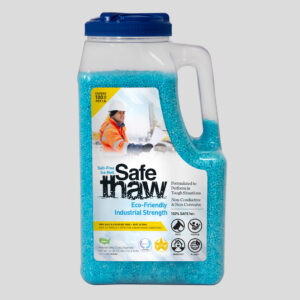
Safe Thaw
Safe Thaw was created as the ice management solution for tough winter environments. Ideal in commercial and industrial properties, shops, government agencies, bridges, construction. It’s 100% Salt-Free and Chloride-Free.
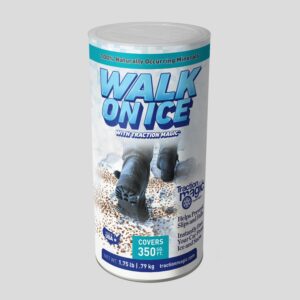
Walk On Ice
The slip and fall prevention solution, for any icy or snowy surface, on a handy portable package! Lightly spread around your walkway, driveway, vehicle, tires, and pathways. Turn ANY icy surface instantly, into a non-skid, slip-free surface.
